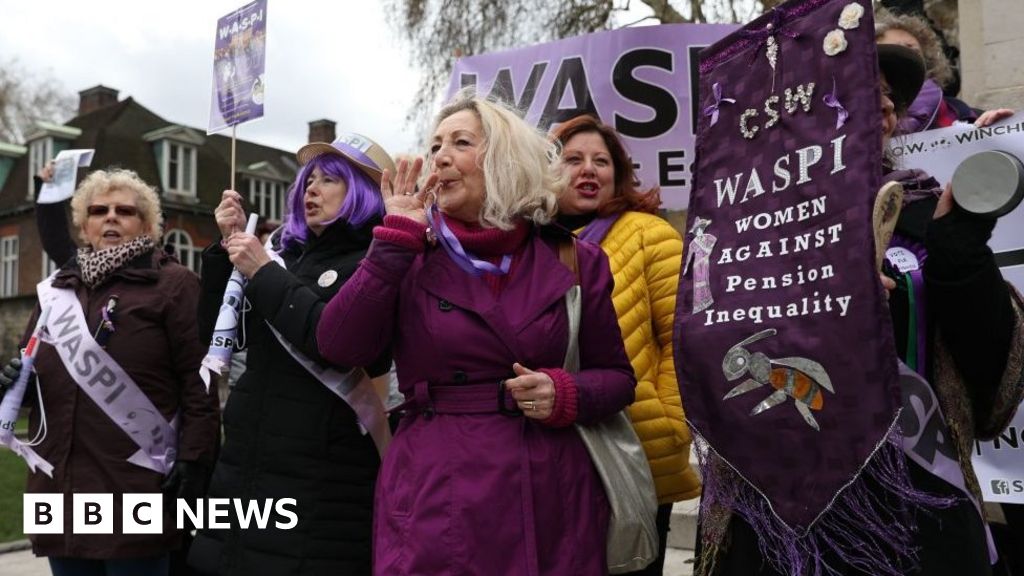Image source, Getty Images
A long-awaited report on how women born in the 1950s were affected by increases to their retirement age is expected to be published on Thursday.
An ombudsman has been looking at potential injustices resulting from the decision to raise women’s retirement age to bring it into line with men’s.
Campaigners say millions of women suffered financially as they were not warned about the rise ahead of time.
Women Against State Pension Inequality say they should receive compensation.
Women Against State Pension Inequality (Waspi) says women’s later-life plans and finances were harmed by the change.
If the report does recommend compensation, the potential bill for the government could run into the billions.
The long-running campaign dates back to changes first passed by the Commons almost 30 years ago.
For more than six decades in the UK, men retired at 65 and women retired at 60.
A law was passed in 1995 setting out a timetable to eventually raise the retirement age for women so it would be the same as men.
The original plan was to phase those changes in between 2010 and 2020, but the coalition government accelerated the shift in 2011 in a bid to reduce the cost of the state pension system to the taxpayer.
It meant the new higher retirement age for women was brought forward to 2018. It was then raised again to 66 for both men and women in 2020.
Waspi says some women born in the 1950s who were not aware of the changes to the retirement age were plunged into poverty and struggled to find work due to their age.
The Parliamentary and Health Service Ombudsman investigation was set up to look at how the retirement age rise was communicated by the Department of Work and Pensions to women most likely to be impacted by the change.
On Thursday, the body is expected to publish the second and third parts of its investigation, which deal with whether those communication failings amounted to “injustice” and possible recommendations on compensation.
The ombudsman is legally not able to recommend the government reimburses women for the full amount of pension they did not receive.
However, it can recommend that at least some of those impacted receive payments of £10,000 or more, though it is not yet known how any compensation scheme would work.
The pension age for both men and women is set to rise again to 67 between 2026 and 2028.
Waspi chair Angela Madden said there has been cross-party support for the campaign for several years but now is the time for urgent action.
She said: “It is now for each political party to put their money where their mouth is and support compensation of that order.
“Waspi women are watching and waiting to see whether politicians who have long supported the campaign will now deliver.”
